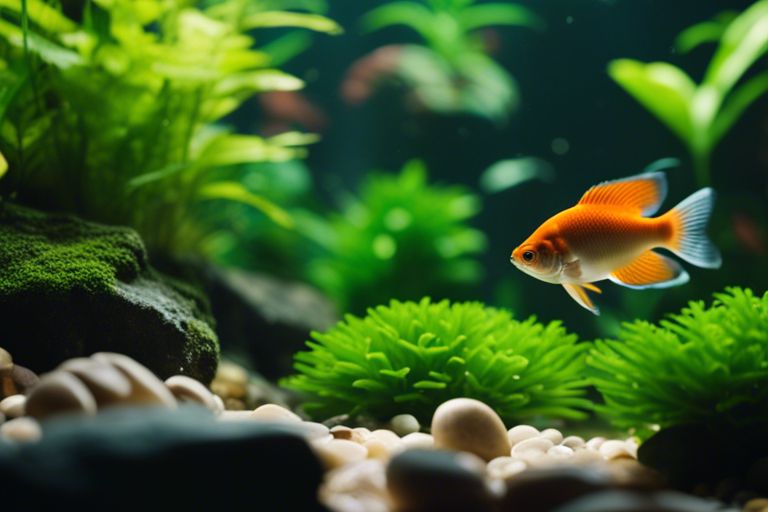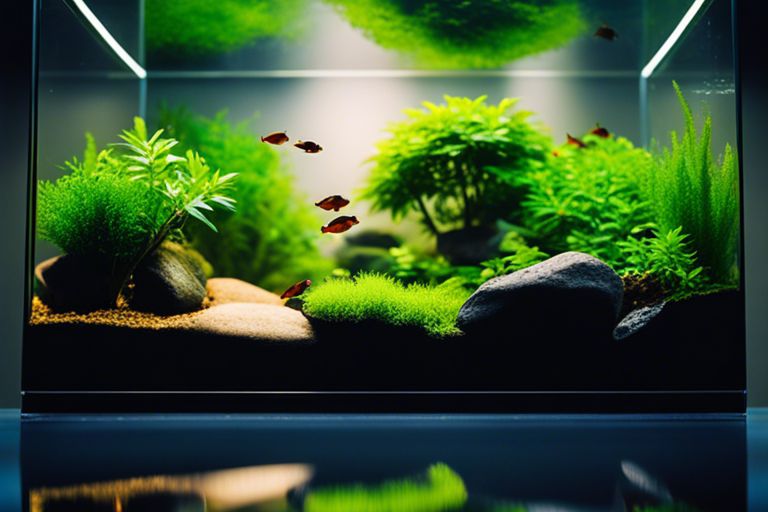You love your freshwater fish, and it’s important to ensure they thrive in a stress-free environment. Stress can have a negative impact on the health and well-being of your aquatic friends. By following a few key tips, you can create a healthy and harmonious habitat for your freshwater fish. From maintaining water quality to providing proper nutrition and reducing overcrowding, these strategies will help you prevent stress and promote a vibrant ecosystem in your aquarium. Let’s investigate the crucials of maintaining a healthy environment for your freshwater fish.
Understanding Fish Stress
Signs of Stress in Freshwater Fish
For freshwater fish owners, understanding the signs of stress in your fish is crucial. Look out for behaviors such as increased aggression, lack of appetite, excessive hiding, rapid gill movement, or odd swimming patterns. These signs can indicate that your fish are experiencing stress and may need intervention.
Common Stress Factors in Aquariums
Signs of stress in freshwater fish can be triggered by various factors in their environment. Common stressors include poor water quality, sudden changes in pH levels or temperature, overcrowding, inadequate hiding spots, or aggressive tank mates. By identifying and addressing these stress factors, you can create a healthier and happier environment for your aquatic pets.
- Inadequate water quality
- Sudden changes in pH levels or temperature
- Overcrowding
- Inadequate hiding spots
Understanding the common stress factors in aquariums is important for maintaining the well-being of your freshwater fish. By ensuring proper water parameters, providing ample space and shelters, and monitoring the behavior of your fish, you can minimize stress levels and promote a thriving aquatic community.
Fish
Ensuring a stress-free environment for your freshwater fish is vital for their overall health and longevity. By being vigilant and proactive in addressing potential stress factors, you can create a peaceful and harmonious aquarium that supports the well-being of your aquatic companions.

Creating a Stress-Free Habitat
Aquarium Size and Fish Stocking
On of the crucial factors in creating a stress-free habitat for freshwater fish is ensuring that the aquarium size is suitable for the fish species you plan to keep. Overcrowding can lead to increased stress levels in fish due to competition for resources and territorial disputes. It’s important to research the specific requirements of each fish and follow recommended stocking levels to maintain a harmonious environment.
Water Quality and Parameters
Habitat quality in an aquarium is greatly influenced by water quality and parameters. Poor water quality can lead to stressed and unhealthy fish. Monitoring parameters such as pH, ammonia, nitrites, and nitrates is vital to ensure a stable and safe environment for your fish. Regular water testing and proper maintenance, such as regular water changes and filter cleaning, are key to preventing stress-related illnesses in freshwater fish.
Fish are highly sensitive to changes in water quality and parameters. Even small fluctuations can lead to stress and impact their overall health. Maintaining a clean and well-balanced aquarium environment is crucial to preventing stress and providing a healthy habitat for your freshwater fish.

Nutritional Needs and Feeding Practices
Diet Requirements for Different Fish Species
While all freshwater fish require a balanced diet to thrive, it is important to consider the specific dietary requirements of different fish species. An understanding of each species’ natural diet and nutritional needs will help you provide the best possible food to keep them healthy and vibrant.
Feeding Schedules and Portion Sizes
Practices such as establishing a consistent feeding schedule and controlling portion sizes are vital for maintaining the health of your freshwater fish. An erratic feeding schedule or overfeeding can lead to stress, obesity, and other health issues. It is recommended to feed your fish small portions several times a day, based on their individual needs and behaviors.
Sizes Fish should be fed an amount they can consume within a few minutes to prevent leftover food from decomposing and polluting the water. Monitoring your fish’s eating habits and adjusting the portion sizes accordingly will help prevent overfeeding and ensure a healthy environment in your aquarium.
Environmental Enrichment and Stimulation
Importance of Aquascaping
Keep your freshwater fish healthy and happy by incorporating aquascaping into their environment. Aquascaping involves arranging rocks, driftwood, and other decorations in the tank to mimic a natural habitat. This provides fish with places to explore, hide, and swim through, reducing stress and boredom.
Integrating Plants and Hiding Spots
An important aspect of maintaining a healthy environment for freshwater fish is integrating live plants and hiding spots into their tank. Environmental enrichment through plants and hiding spots not only enhances the aesthetics of the tank but also provides fish with natural shelters, oxygenation, and breeding spaces.
With a carefully curated selection of aquatic plants such as java ferns, driftwood, and caves, freshwater fish can display their natural behaviors, feel secure, and have areas to retreat to when feeling stressed.

Maintenance and Care
Routine Cleaning and Water Changes
Care for your freshwater fish by maintaining a regular schedule for tank cleaning and water changes. It is imperative to remove debris, uneaten food, and any waste that may accumulate in the tank. Consider investing in a gravel vacuum to clean the substrate during water changes, which should be done regularly to ensure optimal water quality.
Monitoring Fish Health and Behavior
Changes in fish behavior can often indicate underlying health issues. Regularly observe your fish for any signs of distress, such as decreased appetite, abnormal swimming patterns, or discoloration. Investing in a water testing kit to monitor key parameters like ammonia, nitrite, and pH levels can help you prevent potential health problems before they arise.
Behavior: In addition to observing physical signs of illness, pay attention to your fish’s behavior. This includes how they interact with other fish in the tank, their feeding habits, and their overall activity levels. Any sudden changes in behavior should be investigated promptly to ensure the well-being of your freshwater fish.
To wrap up
In the final analysis, maintaining a stress-free environment is crucial for the health and well-being of freshwater fish. By following the tips outlined in this article, such as providing appropriate hiding spots, ensuring proper water quality, and establishing a stable routine, fish owners can prevent stress and promote a healthy aquatic environment. Remember that a proactive approach to preventing stress in freshwater fish will not only enhance their quality of life but also reduce the risk of disease and other complications. By implementing these simple yet effective strategies, you can create a harmonious habitat that supports the overall health and happiness of your aquatic companions.
FAQ
Q: Why is it important to prevent stress in freshwater fish?
A: Preventing stress in freshwater fish is crucial for maintaining their overall health and well-being. Stress weakens the immune system of fish, making them more susceptible to diseases and other health issues.
Q: What are some common causes of stress in freshwater fish?
A: Common causes of stress in freshwater fish include poor water quality, overcrowding, sudden changes in water temperature or pH levels, aggressive tank mates, and inadequate hiding spots.
Q: How can I ensure a healthy environment for my freshwater fish?
A: To ensure a healthy environment for your freshwater fish, you should maintain good water quality, provide adequate space and hiding spots, avoid overcrowding, and keep the tank parameters stable.
Q: What are some signs that my freshwater fish may be stressed?
A: Some signs that your freshwater fish may be stressed include loss of appetite, lethargy, increased aggression, abnormal swimming patterns, gasping at the water surface, or changes in coloration.
Q: How can I reduce stress in my freshwater fish?
A: To reduce stress in your freshwater fish, you should perform regular water changes, avoid sudden changes in tank conditions, provide a well-balanced diet, create a suitable habitat with hiding spots and plants, and minimize disturbances in the tank.
Q: Can stress in freshwater fish be fatal?
A: Yes, prolonged or severe stress in freshwater fish can weaken their immune system and make them more susceptible to diseases, ultimately leading to fatalities if not addressed on time.
Q: Are there any specific species of freshwater fish that are more prone to stress?
A: While all freshwater fish can experience stress, certain species such as bettas, discus, and angelfish are known to be more sensitive to changes in their environment and may require extra attention to prevent stress-related issues.










